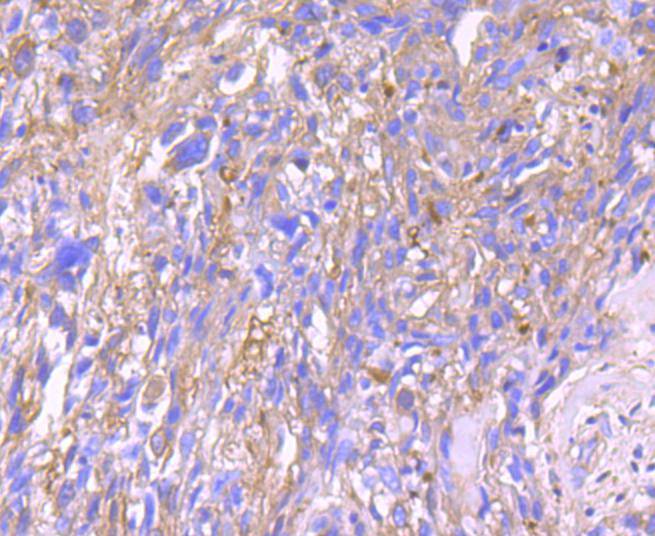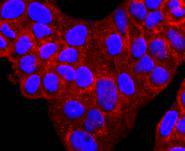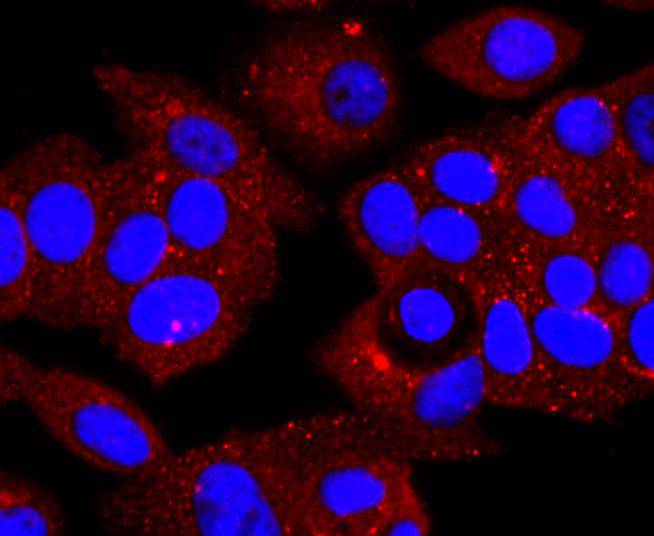Cumulative damage to lung tissue by Neutrophil Elastase is responsible for the development of pulmonary emphysema, an irreversible lung disease characterized by loss of lung elasticity. a 1-antitrypsin (AAT), a 394 amino acid hepatic acute phase protein, predominantly inhibits Neutrophil Elastase. AAT is highly expressed in liver and in cultured hepatoma cells and, to a lesser extent, in macrophages. AAT is a highly polymorphic glycosylated serum protein with characteristic isoelectric-focusing patterns for most variants. The gene encoding AAT maps to a region of human chromosome 14 that includes a related serine protease inhibitor (serpin) gene which encodes corticosteroid-binding globulin. Oxidation of the methionine 358 residue in the active center of AAT results in a dramatic decrease in inhibitory activity towards elastase. AAT also has a moderate affinity for plasmin and Thrombin. AAT deficiency is associated with a 20-30 fold increased risk of precocious pulmonary emphysema.







